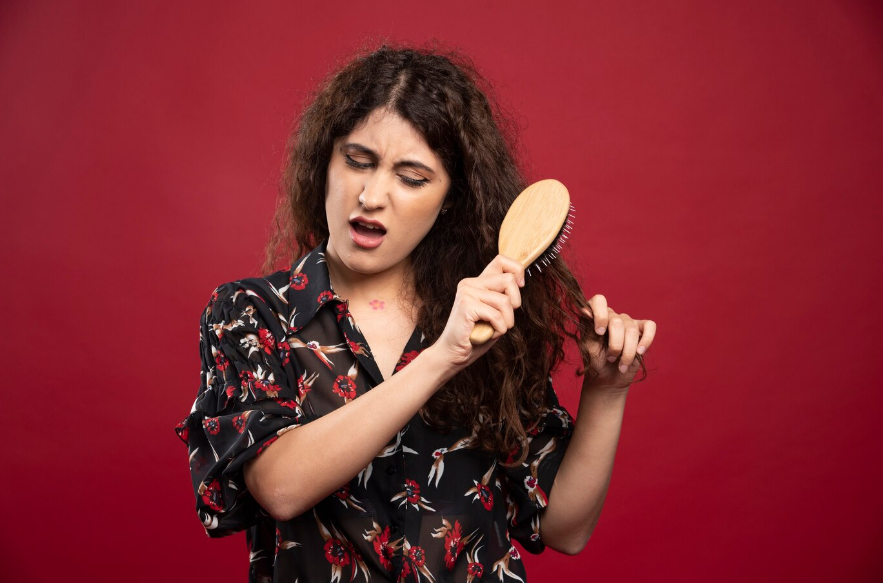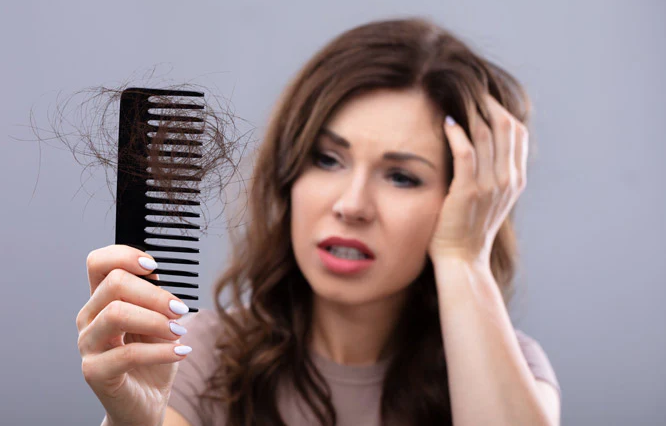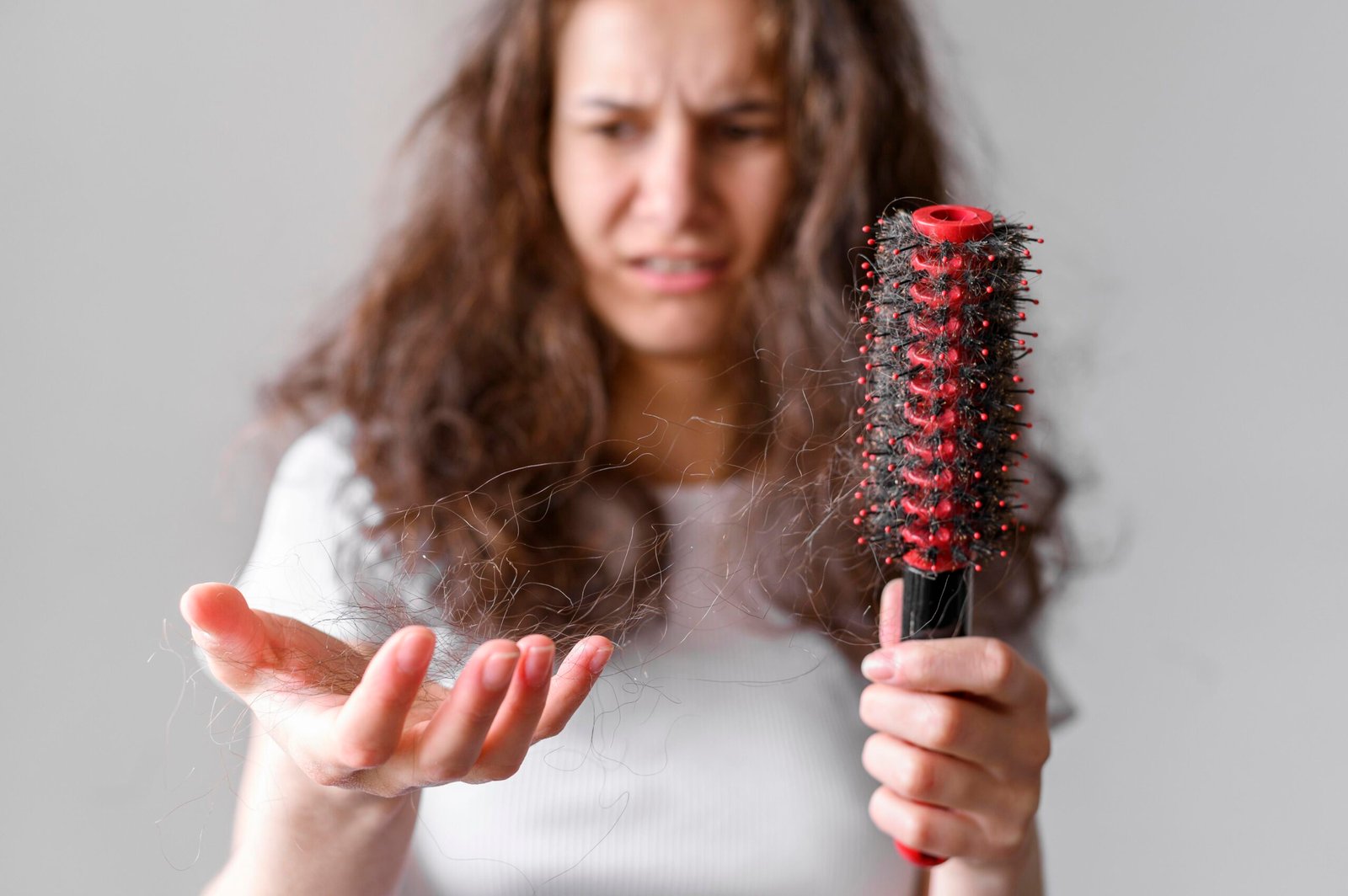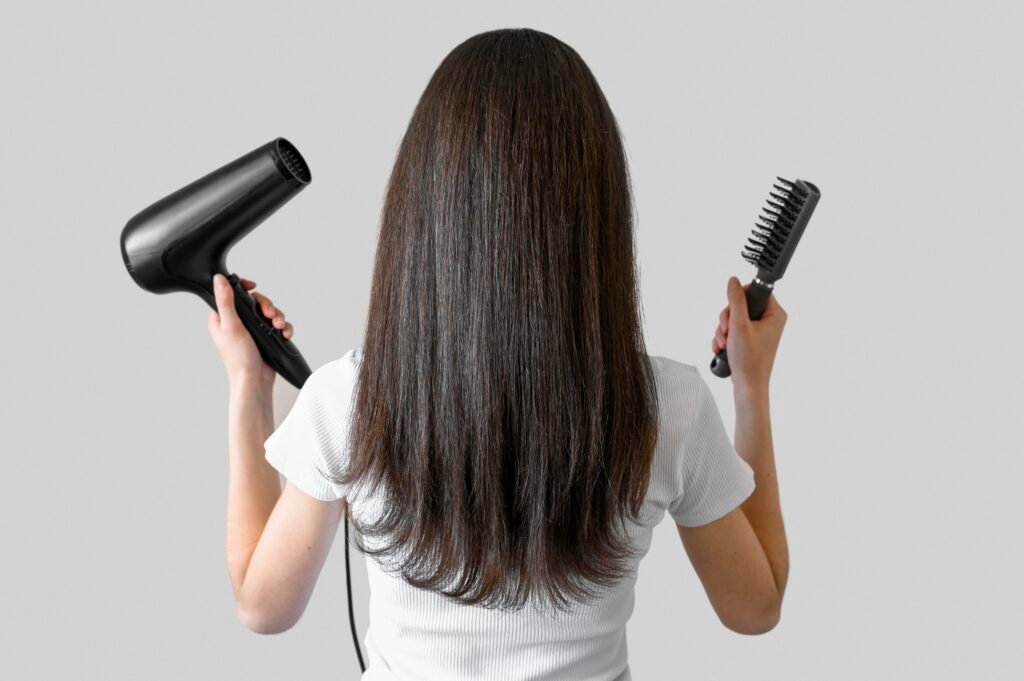Our Location
304 North Cardinal St.
Dorchester Center, MA 02124


Hair fall can be a distressing experience, affecting not just your appearance but also your confidence. Whether you’re seeing a few extra strands in your brush or noticing thinning areas, it’s important to address hair fall before it becomes a bigger problem. Here at Self Care Safary, we’re committed to helping you with informative and effective solutions to upgrade your lifestyle and improve your overall well-being. Let’s dive into some proven tips to help you reduce hair loss and enjoy a fuller, healthier head of hair.
First, let’s understand why hair falls happen. It’s normal to lose about 50-100 hairs daily as part of the natural growth cycle. However, excessive hair loss can be triggered by various factors, including:
Stress: High-stress levels can disrupt the hair growth cycle, leading to increased hair shedding.
Nutritional Deficiencies: Lack of essential nutrients like iron, vitamin D, and protein can weaken hair roots.
Hormonal Changes: Conditions like thyroid imbalances or hormonal shifts during pregnancy and menopause can cause hair loss.
Scalp Conditions: Dandruff, psoriasis, and other scalp infections can impact hair health.
Genetics: A family history of hair loss can increase your likelihood of experiencing it.

A nutritious diet is the foundation of healthy hair. Ensure you’re getting enough:
Chronic stress can lead to hair loss. Try these stress-reducing techniques:

How you treat your hair can make a big difference. Follow these tips:
A healthy scalp is essential for healthy hair growth. Here’s how to care for it:
Tight ponytails, buns, or braids can pull on your hair and cause it to break. Opt for looser styles and use hair ties that are gentle on your hair.
Drinking enough water is crucial for overall health, including your hair. Aim for at least 8 glasses of water a day to keep your hair hydrated and strong.
If you’re not getting enough nutrients from your diet, supplements can help. Biotin, vitamin D, iron, and zinc supplements are often recommended for improving hair health. However, consult with a healthcare provider before starting any new supplement.
If you’ve tried these tips and still notice excessive hair fall, it might be time to consult a dermatologist or trichologist. They can diagnose underlying conditions and recommend appropriate treatments such as topical solutions, medications, or other therapies.

Dealing with hair fall can be challenging, but with the right care and lifestyle changes, you can reduce hair loss and promote healthier hair growth. At Self Care Safary, we believe in empowering you with the knowledge and tools to take control of your health and well-being. By following these tips, you can say goodbye to hair fall and hello to luscious, strong hair. Remember, consistency is key, and taking care of your hair is a journey, not a quick fix. Stay patient, stay committed, and enjoy the journey to healthier hair!
Ready to transform your hair care routine? Start today with these tips and embrace the path to beautiful, healthy hair! For more insightful articles and tips on self-care, keep exploring Self Care Safary. Your well-being is our priority.